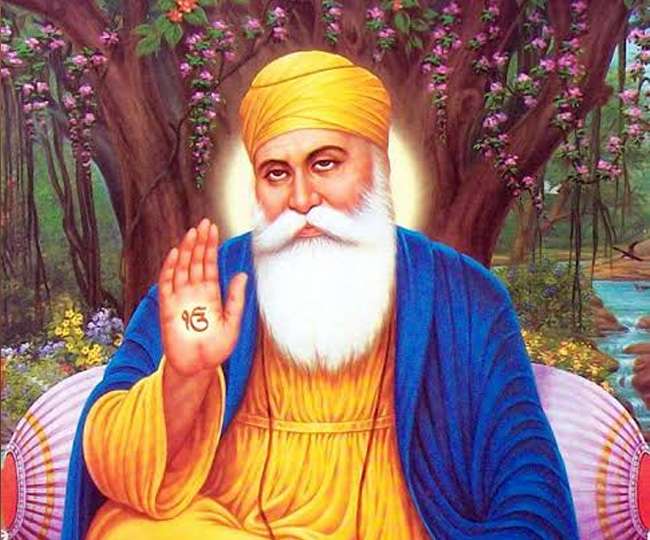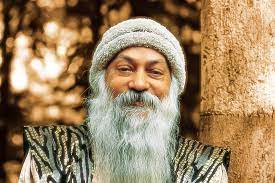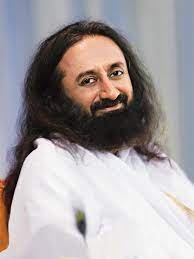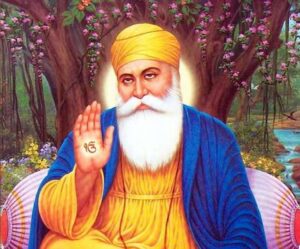

Sadhguru
The new moon day known as the Mahalaya Amavasya is the beginning of Dussehra. It is a special day dedicated to making an offering to express our gratitude to all the previous generations of people who have contributed to our life.
Scientists say that human beings and their ancestors have existed on this planet for 20 million years. That is a lot of time. All these hundreds of thousands of generations that lived on this planet before us have given us something or the other. The language that we speak, the way we sit, our clothes, our buildings – almost everything that we know today has come to us from generations before us.
Pitru Paksha: The Legacy of Past Generations
When only animals existed on this planet, it was all about survival, eating, sleeping, reproduction and dying one day. Then slowly, this animal which knew only survival, started evolving. From being horizontal, it started standing up; the brain started growing, and this animal’s ability to do things suddenly started multiplying. The significant thing about being human is that we can use tools. This simple ability of using tools, we multiplied or made it grow into technologies. The day an ape picked up a thighbone of an animal and started fighting with that bone instead of with just his hands; when, apart from his own body, he had the necessary intelligence to start using tools to make his life, in some way that was the beginning of human life on the planet.

OSHO
The Shradh Pitra Paksha, also known as the Pitru Paksha or Mahalaya Paksha, is a sacred period observed in the Hindu lunar calendar. During this time, families pay homage to their ancestors by performing rituals and offering prayers. It is believed that the souls of departed ancestors return to the earthly realm during this fortnight, and their blessings and guidance are sought. Osho, the renowned spiritual teacher, had unique insights into the significance of this observance from a spiritual perspective.
Understanding the Shradh Pitra Paksha
The Shradh Pitra Paksha typically falls in the Hindu month of Ashwin (September-October) and lasts for 15 lunar days. During this period, people perform rituals like Tarpana (offering of water and food) and offer prayers to seek the blessings of their forefathers. It is believed that by doing so, one can alleviate the suffering of their ancestors in the afterlife and ensure their well-being in the spiritual realm.
Osho’s Perspective
Osho, also known as Bhagwan Shree Rajneesh, was a spiritual teacher and philosopher who offered profound insights into various aspects of life and spirituality. When it comes to the Shradh Pitra Paksha, Osho’s teachings emphasize a broader understanding of the rituals involved and their deeper significance:
1. Beyond Rituals
Osho encouraged his followers to look beyond the external rituals associated with Shradh Pitra Paksha. He believed that true spirituality is not confined to performing ceremonies but is an inner journey of self-realization. According to him, rituals can serve as a means to connect with one’s inner self, but they should not be mistaken for the ultimate goal.
2. Connection with Ancestors
Osho acknowledged the importance of acknowledging and respecting one’s ancestors. He explained that our ancestors have contributed to our existence, and their genetic and karmic imprints influence our lives. However, he urged individuals to remember that the real connection with ancestors is not through rituals but through recognizing their presence within us, in our DNA and consciousness.
3. Letting Go of the Past
One of Osho’s central teachings was the idea of living in the present moment and letting go of the past. While he recognized the value of honoring ancestors during the Shradh Pitra Paksha, he emphasized that attachment to the past, whether through rituals or emotions, can hinder spiritual growth. Osho encouraged individuals to release any burdens from the past and focus on their personal spiritual evolution.
4. Embracing Transformation
Osho believed that spirituality is a dynamic, transformative process. Rather than being bound by tradition and dogma, he encouraged individuals to embrace change and personal growth. In the context of Shradh Pitra Paksha, he suggested that the rituals and prayers should be a means to inspire personal transformation and inner awakening.

Sri Sri Ravi Shankar
The Shradh Pitra Paksha, a sacred observance in the Hindu calendar, is a time when families pay tribute to their ancestors through rituals and prayers. It is believed that during this fortnight, the souls of departed ancestors revisit the earthly realm, and their blessings are sought. Ravi Shankar, a prominent spiritual leader, offers his insights into the significance of Shradh Pitra Paksha.
Ravi Shankar emphasizes the deep spiritual connection between the living and the departed during this period:
1. Communion with Ancestors: According to Ravi Shankar, the Shradh Pitra Paksha is a time to reconnect with one’s roots and acknowledge the contributions of ancestors. He encourages people to perform rituals with a sense of gratitude and reverence, recognizing the wisdom and blessings that flow from one generation to the next.
2. Healing and Release: Ravi Shankar believes that the rituals of Shradh Pitra Paksha offer an opportunity for healing and closure. By honoring their ancestors, individuals can release any unresolved emotions or burdens associated with the past, leading to a sense of inner peace and liberation.
3. Family Bond: Ravi Shankar underscores the importance of family unity during this period. He encourages families to come together, not just for rituals but also for reflection and sharing. This fosters a sense of togetherness and strengthens the bonds between generations.
4. Spiritual Growth: Beyond the rituals, Ravi Shankar sees the Shradh Pitra Paksha as a time for personal and spiritual growth. He advises individuals to use this occasion for self-introspection, seeking to improve themselves and their relationships with others. It is an opportunity to let go of grudges and nurture compassion.

Guru Nanak and Duni Chand
The Guru proceeded to the river Ravi and then to Lahore. The Lahore territory was then farmed from the Emperor by a millionaire Khatri, whose name was Duni Chand. He was performing the ceremony of Shradh (Shradhs are oblations of cakes and libations of water made to the spirits of deceased ancestors) for his deceased father, when he heard of the devout Nanak’s arrival. He took the Guru to his house, and treated him with great affection. When everything was ready for the anniversary feast, Duni Chand began to feed the Brahmans.
The Guru, on being summoned, asked what the matter was. Duni Chand replied that it was his father›s shradh, and that he had fed one hundred Brahmans in his name. The Guru replied, It is now two days since thy father hath eaten anything, and yet thou sayest thou hast fed one hundred Brahmans for him. Duni Chand asked where his father was. The Guru replied that he had become incarnate as a wolf, which was now in a clump of trees six miles distant. The reason his father›s soul had entered a wolf was, that while he was in human form he had coveted meat which was being cooking by a neighbour, and had died in that desire.
The Guru, on seeing several flags over Duni Chand›s door, asked what they were. He explained that each flag denoted a lakh (100,000) rupees which Duni Chand had acquired. On this the Guru gave him a needle, and told him to keep it until he asked for it in the next world. Duni Chand took the needle to his wife, and told her to put it by for the purpose indicated. She believed him crazed, and asked how a needle could go to the next world. She accordingly charged him to return it to the Guru.
Duni Chand took the needle with his wife›s message to the Guru, who said, ‹If such a small and light thing as a needle cannot go to the next world, how can thy wealth reach there?› Upon this Duni Chand fell at Guru ji feet, and prayed to tell him by what means his wealth should reach the next world. The Guru replied, “Give some of thy wealth in God’s name, feed the poor, and thy wealth shall accompany thee.” Upon this Duni Chand distributed seven lakhs of treasure, for he understood that disobedience to the Guru›s order would militate against his salvation. He then became a disciple of the Guru, and began to repeat the Naam. Guru Nanak uttered the following Shabad on the occasion.















